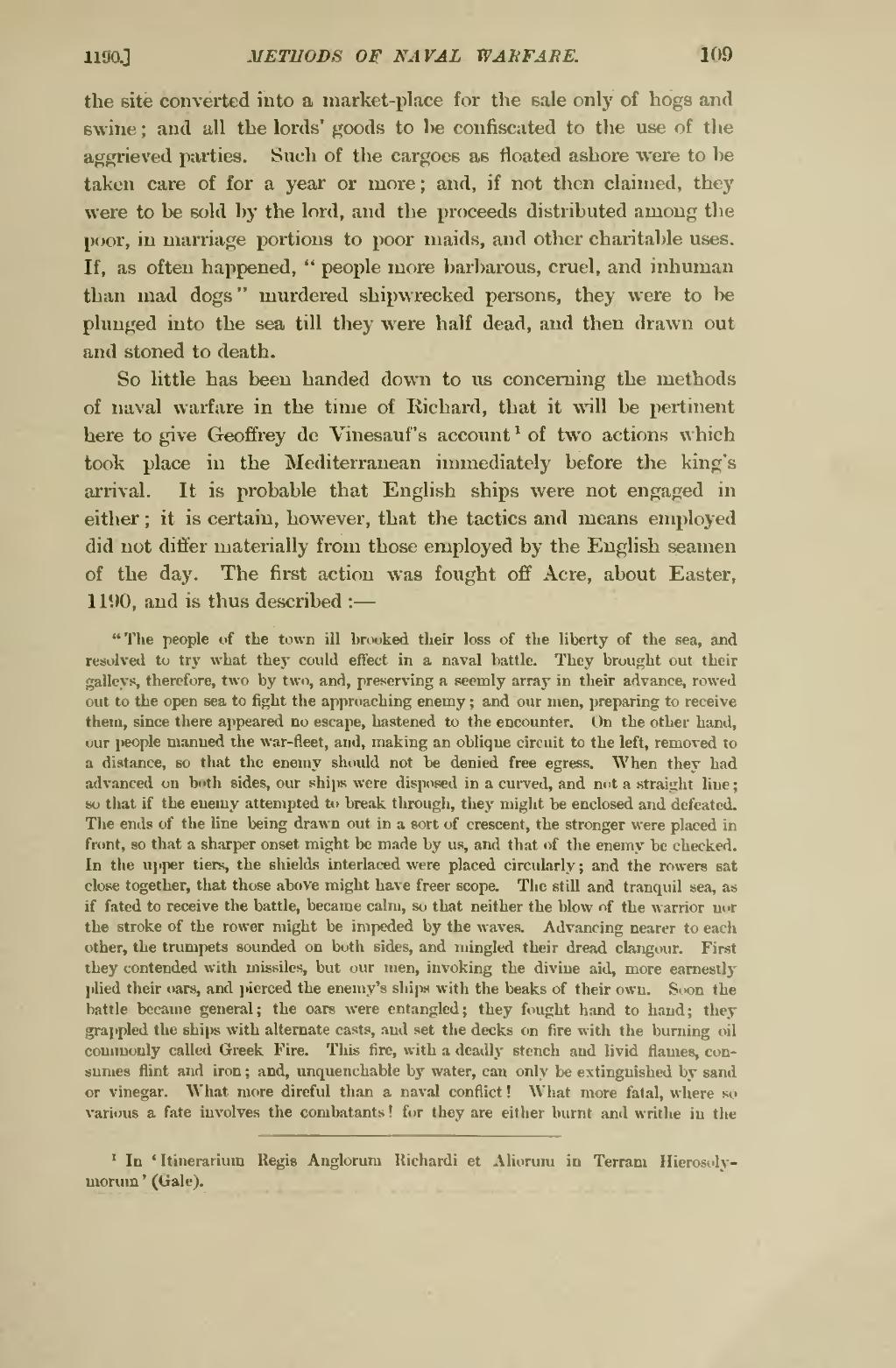1190.]
METHODS OF NAVAL WARFARE.
109
the site converted into a market-place for the sale only of hogs and swine; and all the lords' goods to he confiscated to the use of the aggrieved parties. Such of the cargoes as floated ashore were to be taken care of for a year or more; and, if not then claimed, they were to be sold by the lord, and the proceeds distributed among the poor, in marriage portions to poor maids, and other charitable uses. If, as often happened, "people more barbarous, cruel, and inhuman than mad dogs" murdered shipwrecked persons, they were to be plunged into the sea till they were half dead, and then drawn out and stoned to death.
So little has been handed down to us concerning the methods of naval warfare in the time of Richard, that it will be pertinent here to give Geoffrey de Vinesauf's account[1] of two actions which took place in the Mediterranean immediately before the king's arrival. It is probable that English ships were not engaged in either; it is certain, however, that the tactics and means employed did not differ materially from those employed by the English seamen of the day. The first action was fought off Acre, about Easter, 1190, and is thus described:-
"The people of the town ill brooked their loss of the liberty of the sea, and resolved to try what they could effect in naval Battle. They brought out their galleys, therefore, two by two, and, preserving seemly array in their advance, rowed out to the open sea to fight the approaching enemy; and our men, preparing to receive them, since there appeared no escape, hastened to the encounter. On the other hand, our people manned the war-fleet, and, making an oblique circuit to the left, removed to a distance, so that the enemy should not be denied free egress. When they had advanced on both sides, our ships were disposed in a curved, and not a straight line; so that if the enemy attempted to break through, they might be enclosed and defeated. The ends of the line being drawn out in a sort of crescent, the stronger were placed in front, so that a sharper onset might be made by us, and that of the enemy be checked. In the upper tiers, the shields interlaced were placed circularly; and the rowers sat close together, that those above might have freer scope. The still and tranquil sea, as if fated to receive the battle, became calm, so that neither the blow of the warrior nor the stroke of the rower might be impeded by the waves. Advancing nearer to each other, the trumpets sounded on both sides, and mingled their dread clangour. First they contended with missiles, but our men, invoking the divine aid, more earnestly plied their oars, and pierced the enemy's ships with the beaks of their own. Soon the battle became general; the oars were entangled; they fought hand to hand; they grappled the ships with alternate casts, and set the decks on fire with the burning oil commonly called Greek Fire. This fire, with a deadly stench and livid flames, consumes flint and iron; and, unquenchable by water, can only be extinguished by sand or vinegar. What more direful than naval conflict! What more fatal, where so various a fate involves the combatants! for they are either burnt and writhe in the
- ↑ In 'Itinerarium Regis Anglorum Richardi et Aliorum in Terram Hierosolymorum' (Gale).
